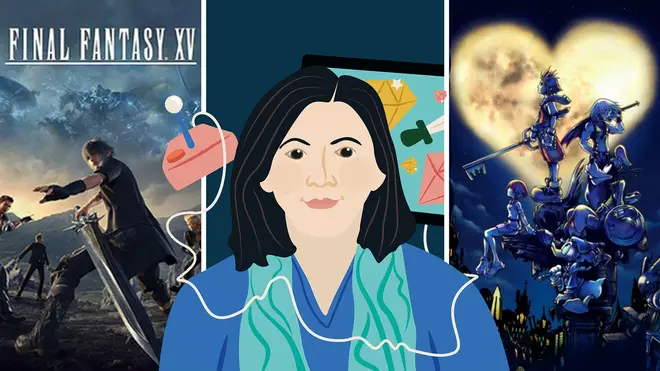On Air Now
Calm Classics with Myleene Klass 10pm - 1am
17 March 2022, 14:58

The Japanese composer has set the bar high for video game music – from ‘Final Fantasy XV’ to ‘Kingdom Hearts’, here are her very best scores.
The Hyōgo-born composer of over 45 scores, Shimomura has been honing her craft in emoting pixels in close-combat situations since she graduated from Osaka College of Music in 1988.
Responsible for music for some of the biggest video games ever made, she started out as a composer for video game developer Capcom, penning scores for Final Fight and Street Fighter II, among numerous others.
It was in her next role, in the music department of games company Square, that Shimomura wrote her enduringly popular music for Kingdom Hearts, which was voted as No. 86 in the Classic FM Hall of Fame 2021.
She soon went freelance, but continued scoring powerful game soundtracks under her own production company, Midiplex. Under Midiplex, Shimomura has written more in the Kingdom Hearts series, as well as her beloved music for Final Fantasy XV (No. 217 in the Hall of Fame 2021).
Here are some of her best works to date.
Read more: Our guide to the best video game soundtracks
Kingdom Hearts is a role-playing adventure game, co-produced by Disney and Squaresoft. As well as sumptuous, piano-led electronic orchestral music by Shimomura, it features a voice cast that stars Haley Joel Osment (The Sixth Sense) and Hayden Panettiere (Heroes).
The soundtrack features arrangements of melodies derived from previous Disney films, alongside original themes for the game by Shimomura.
Final Fantasy XV was one of the biggest video game releases of 2016. Whereas fellow video game composer Nobuo Uematsu was responsible for music earlier on in the franchise, Shimomura made a sweeping, Wagnerian epic of her score for the fifteenth chapter.
A highlight in the score is ‘Somnus’, a sombre piano and vocal moment that features a striking Latin text over the hushed keyboard writing.

Final Fantasy XV Live From London
Read more: Movie music shoots ahead in world’s biggest classical music poll after year of lockdown >
In 1998, Square produced a video game version of Hideaki Sena’s 1995 novel Parasite Eve, which explores the power of microscopic cellular mitochondria – and what might have happened in an alternate universe where they split away from cellular life and formed a separate intelligent conscious life-form, dubbed Eve.
The call for music for such a sinuous tale required answer by someone capable of equal intricacy in their work – so we’re glad it was Shimomura.
And early in her career no less, but Parasite Eve remains one of the composer’s most popular scores. It combines electronica and opera in an ‘inorganic’ score that was later released in a remixes album.

Parasite Eve I OST (DISC 1) / 01 - Primal Eyes
Yoko Shimomura took the pen for Mana in its third instalment, with composers Kenji Ito and Hiroki Kikuta, respectively, being her predecessors for the music.
In 2002, she described her work for the game as the best expression of herself, preferring “passionate music that comes from the heart” as showcased in her score for this game.

Legend of Mana OST - Legend of Mana ~ Title Theme
From its first 1995 instalment, Front Mission’s music by Shimomura featured her signature mix of orchestral and electronic sounds.
The composer worked alongside Noriko Matsueda for her part, taking on the action moments while Matsueda was responsible for calmer sequences. Other composers were involved in later chapters and spin-offs in the game.

Front Mission 1st OST - Track 4 - Advanced Guard
Super Mario RPG is a 1996 Square-produced video game, made for Nintendo.
Shimomura’s music for the game is upbeat and energetic, rooted in old-school electronics sounds. Chirpy melodies like ‘Beware the Forest’s Mushrooms’ and ‘Rose Town’ bring distinct scenes to life with vibrancy.

Beware the Forest's Mushrooms - Super Mario RPG: Legend of the Seven Stars Music Extended
Street Fighter is an iconic combat game developed by Capcom in 1987, and Shimomura was responsible for the soundtrack to its second instalment in 1991, early in her career.
“It was mostly the planner who explained what kind of songs they wanted,” Shimomura explained in a 2017 interview. “He gave me a list [and] there were different scenes from different countries.”
They discussed making background themes with the feeling of the different locations, rather than scoring themes for distinct characters in the game, and the result is a light-hearted selection of distinct, high-energy themes.

Ryu Theme (Street Fighter 2) Yoko Shimomura